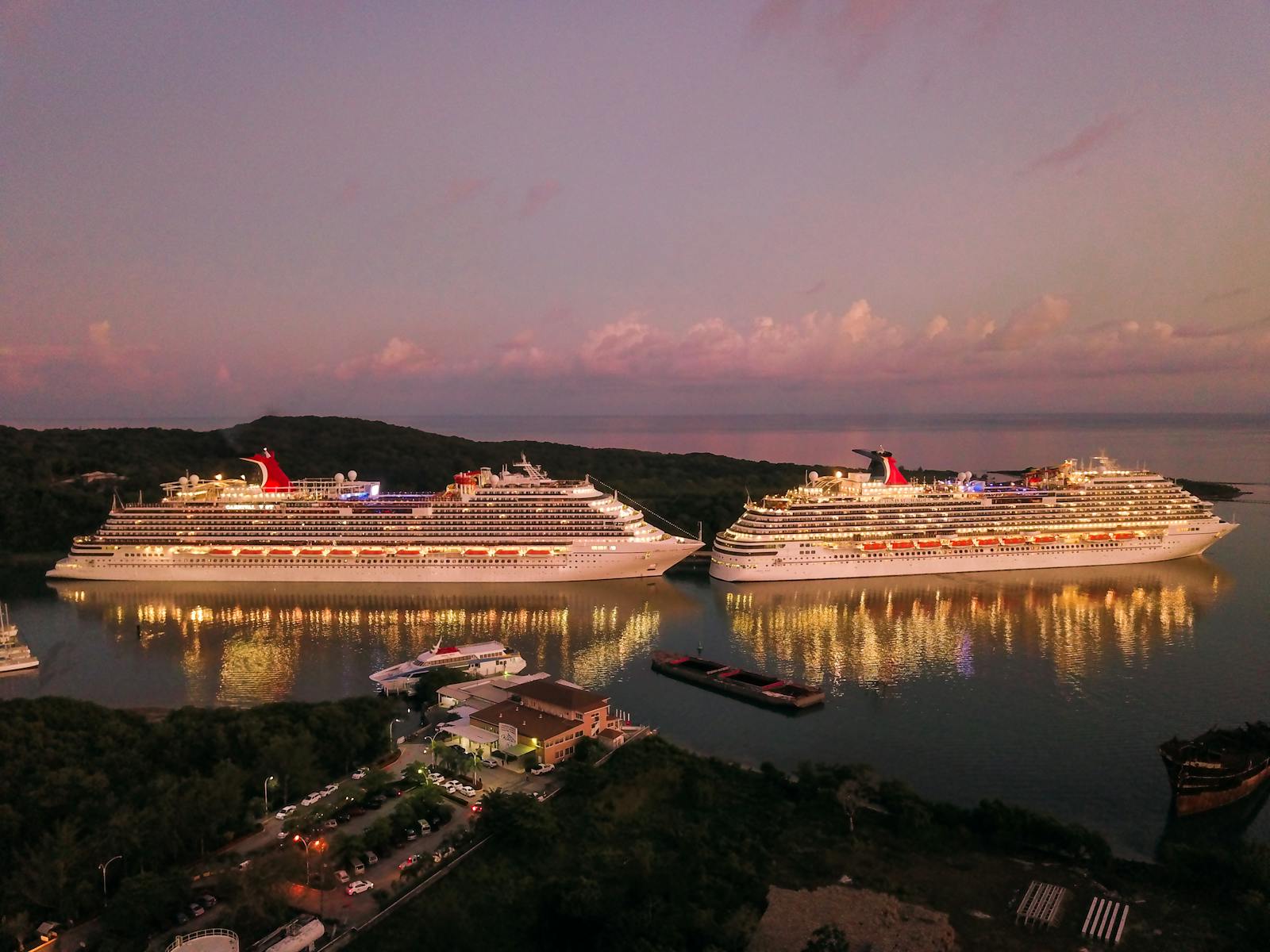Going on a cruise vacation is an exciting way to explore new destinations, relax at sea, and enjoy a variety of entertainment and activities—all in one trip. Whether you’re a first-time cruiser or a seasoned traveler, preparing for your cruise is key to making the most of your time on board. From packing tips to budgeting advice, there are a few important things to know before setting sail. Here are 15 essential tips to ensure that your cruise vacation goes smoothly and is as enjoyable as possible.
1. Not All Cruise Lines Are the Same
One of the first things to consider before booking a cruise is that not all cruise lines are the same. Each cruise line caters to different types of travelers, so it’s important to choose one that aligns with your vacation style and expectations. For example, Carnival Cruise Line is known for its lively, party atmosphere, while Celebrity Cruises tends to attract a more sophisticated crowd with a focus on luxury and dining. Disney Cruise Line is perfect for families with kids, while Royal Caribbean offers a mix of adventure, family activities, and entertainment for all ages.
Do your research and pick a cruise line that matches the experience you’re looking for. Whether you’re seeking relaxation, adventure, or family fun, there’s a cruise line that fits your needs.
2. You’ll Need a Passport or Travel Documents
For most cruises, especially those departing from the U.S. and traveling to international destinations, you’ll need a valid passport. Some cruises allow passengers to travel with other forms of identification (such as a birth certificate and a government-issued ID), particularly if the cruise begins and ends at the same U.S. port, known as a closed-loop cruise. However, it’s always safest to travel with a passport in case of an emergency or unexpected situation where you might need to fly back home from a foreign country.
Check the specific requirements for your cruise well in advance to avoid any last-minute issues at the port.
3. Arrive at the Departure Port a Day Early
Although your cruise may not depart until the afternoon, it’s always a good idea to arrive at the departure port a day early. This is especially important if you’re flying into the city where the cruise departs. Flights can be delayed, and unexpected issues like bad weather or traffic can cause you to miss your ship if you arrive too late.
By arriving a day early, you give yourself plenty of time to handle any travel hiccups and ensure that you don’t miss your cruise. Plus, you’ll be more relaxed knowing you have time to explore the port city or grab a good night’s rest before boarding.
4. Pack a Carry-On Bag for Embarkation Day
When you board your cruise ship, your luggage will likely be delivered to your cabin later in the day, sometimes several hours after you’ve boarded. To avoid being stuck without essentials, it’s important to pack a carry-on bag with items you’ll need right away, such as medications, sunscreen, swimsuits, a change of clothes, and your travel documents.
This way, you can hit the pool or explore the ship while waiting for your luggage to arrive. Be sure to also carry any valuables, like electronics or jewelry, in your carry-on bag.
5. Cruise Ships Are Cashless
On most cruise ships, you won’t need to carry cash for your purchases. Instead, cruise lines use a cashless system where everything is charged to your onboard account, which is linked to your cruise card or wristband. This card acts as your room key, identification, and method of payment for everything onboard, from dining and drinks to excursions and spa services.
While you won’t need cash for most onboard purchases, it’s a good idea to bring some for tipping staff or for use at port stops, where cash may be preferred.
6. Shore Excursions Can Add Up
Cruises are known for their shore excursions—guided tours, activities, and adventures at each port of call. While excursions are a great way to explore new places, they can quickly add up and become expensive. Cruise lines often offer organized excursions, but these may come at a premium price compared to what you might find by booking independently.
Do some research ahead of time to compare the prices of cruise-sponsored excursions with independent tour companies or even exploring on your own. If you’re comfortable venturing out solo, you can often find more affordable options and have a more personalized experience.
7. Plan Your Days at Sea
While port days offer plenty of opportunities for exploring new places, sea days (when the ship is sailing between destinations) are a great time to relax and take advantage of the onboard activities. Cruise ships offer a wide variety of things to do on sea days, including pools, spas, fitness centers, shows, games, and classes.
However, these activities can fill up quickly, so it’s a good idea to plan your sea days in advance. Some ships allow you to book activities like spa treatments or fitness classes ahead of time, ensuring you don’t miss out on the things you want to do.
8. You’ll Need to Budget for Extra Expenses
While most cruises are advertised as all-inclusive, there are still many things that are not included in the base fare. You’ll want to budget for extras such as specialty dining, alcoholic beverages, Wi-Fi, shore excursions, and gratuities. Additionally, some activities onboard, such as spa services or fitness classes, may come with extra fees.
It’s important to factor in these additional costs when planning your cruise to avoid any surprises. Some cruise lines offer drink packages or specialty dining packages that can save you money if you plan to indulge in those services frequently.
9. Consider Purchasing Travel Insurance
Unexpected events, such as illness, flight delays, or bad weather, can disrupt your cruise plans. Purchasing travel insurance can give you peace of mind by covering cancellations, medical emergencies, and trip interruptions. Travel insurance is especially useful for cruises, as many trips are non-refundable after a certain point, and medical expenses on a ship can be high.
Make sure to review your insurance policy to ensure it covers cruises and check the specific terms regarding cancellations, medical care, and travel delays.
10. Your Cabin Location Matters
Choosing the right cabin location can make a big difference in your cruise experience. If you’re prone to motion sickness, opt for a cabin on a lower deck and toward the center of the ship, where movement is less noticeable. If you want to enjoy ocean views or fresh air, consider booking a balcony cabin.
If you prefer peace and quiet, avoid booking a cabin near high-traffic areas like the elevators, pools, or entertainment venues, as these areas can be noisy at night. Choosing the right cabin based on your preferences can greatly enhance your comfort during the trip.
11. Wi-Fi at Sea Can Be Expensive and Slow
If you’re planning to stay connected while on your cruise, be prepared for expensive and often slow Wi-Fi. Internet access on cruise ships is typically provided through satellite connections, which can be unreliable and slow, especially in remote areas or on sea days.
Most cruise lines offer Wi-Fi packages, but they can be pricey. If you need to stay connected, consider purchasing a package or using Wi-Fi only when you really need it. Some travelers choose to disconnect entirely while at sea and use free or cheaper Wi-Fi at port stops.
12. Pack for All Types of Weather
Even if you’re cruising to a warm destination like the Caribbean, it’s a good idea to pack layers for cooler weather, especially if your cruise includes sea days. Ocean breezes can make the ship feel cooler, especially in the evenings, so bring a light jacket or sweater.
Additionally, some destinations may experience rain showers or cooler temperatures, so packing a raincoat or waterproof gear can help you stay comfortable while exploring the ports. Being prepared for all types of weather will ensure you enjoy every part of your cruise, rain or shine.
13. Gratuities Are Often Added Automatically
Gratuities for the ship’s crew are typically added automatically to your onboard account, so you don’t need to worry about tipping for every service. These gratuities cover staff members who take care of your cabin, serve your meals, and provide other services throughout your trip.
Some cruise lines give you the option to pre-pay gratuities when you book your cruise, while others will charge you at the end of your trip. If you feel that a particular crew member provided exceptional service, you can always tip them personally.
14. Dining Is More Flexible Than You Think
Cruises are known for their wide range of dining options, from buffets and formal dining rooms to specialty restaurants and room service. While many people think cruise dining is restricted to specific seating times, most cruise lines now offer more flexible dining arrangements, allowing you to eat when and where you want.
However, specialty restaurants (like steakhouses or sushi bars) often require reservations and come with additional fees. If you’re a foodie, make sure to reserve your spot at any specialty restaurants early to avoid missing out on these unique dining experiences.
15. Prepare for Embarkation and Disembarkation Days
The first and last days of your cruise, known as embarkation and disembarkation days, can be hectic. On embarkation day, expect long lines for check-in and security as passengers board the ship. Arriving early can help you beat the crowds and give you more time to settle in and explore the ship.
On disembarkation day, you’ll be required to vacate your cabin early in the morning, even though you might not leave the ship until later. Be prepared for a slower-paced exit as passengers disembark in groups. To make the process smoother, have your travel documents and any required forms ready and know your plan for transportation from the port.
A cruise vacation offers a unique and exciting way to travel, but proper planning can make all the difference in ensuring a smooth and enjoyable experience. By knowing what to expect and preparing ahead of time, you’ll be ready to make the most of your time on board, whether you’re sailing through tropical waters or exploring new destinations. From packing smart to budgeting for extra costs, these 15 tips will help you have a worry-free and unforgettable cruise vacation.




